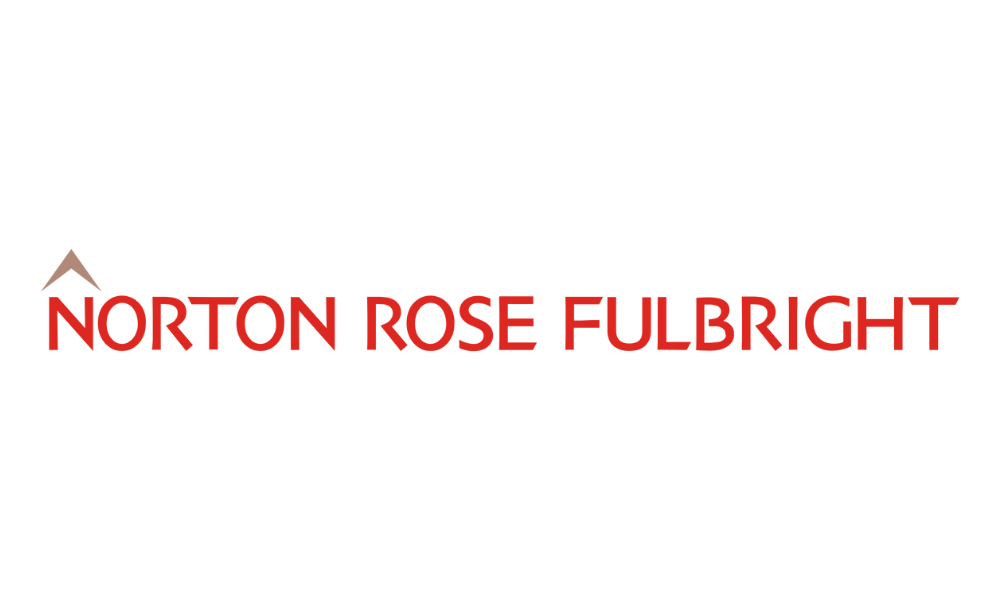Environmental, social and governance (ESG) issues continue to dominate the corporate world as companies strive to balance the needs of multiple stakeholders may not be aligned with their priorities. For some stakeholders protecting the environment and ensuring we are socially responsible means being a good corporate citizen. In contrast, others argue that existing ESG initiatives are a form of ‘greenwashing’ – nothing more than a marketing tactic with too much emphasis, drawing attention from other more critical issues. There is no doubt that ESG has become politicized, bringing heightened focus and complexity to the issues and risks related to ESG, and this trend will likely continue during 2023. Companies need to consider that the ESG label and the components that make up ESG have been caught up in an increasingly divisive political and social landscape. This leads to the concern that an ESG-related misstep could lead to financial and reputational harm – at the institutional and executive levels.
There are many issues that companies need to pay attention to in 2023 on the ESG front – we have listed nine of the top considerations business leaders should keep top of mind.
Shareholder Proposals
For ESG-focussed investors, shareholder proposals are an important tool to allow recommendations or requirements to be presented directly to shareholders. Shareholder proposals represent an opportunity for companies to demonstrate their commitment to ESG but, depending on the nature of the proposal, create a risk of highlighting perceived underperformance in relation to ESG issues.
A number of large issuers have successfully implemented management-supported “Say on Climate” proposals that give shareholders an annual non-binding vote on the company’s climate strategy. Implementing these proposals on management’s terms creates a first-mover advantage against potential ESG activists and allows management to control the ESG narrative.
Other issuers have taken the approach of engaging and negotiating with activist shareholders, whether proactively or as the result of a proposal submission. In some instances, prescriptive proposals that might have the effect of unduly fettering the discretion of management and the board have been withdrawn entirely or recast as principles based proposals that satisfy the needs of activists while allowing the flexibility to implement the proposals within a business framework. Overly prescriptive proposals in 2022 saw less support from proxy advisory firms and asset managers compared to principles-based proposals, suggesting that issuers may find support from those groups if they are willing to engage with activist shareholders.
Issuers that fail to engage with and simply recommend against voting in favour of a shareholder proposal run the risk of losing that gamble.
Companies can mitigate against the risks posed by shareholder proposals by reviewing their ESG strategies and disclosure to identify areas that might be open to attack by activists and then proactively putting forward proposals themselves, engaging with activist investors or taking steps to improve their ESG performance.
Public Company Disclosure
Many public companies and organizations with no continuous disclosure obligations have been publicly disclosing ESG or sustainability reports for some time now. Under Canadian securities laws, public companies are required to disclose material information concerning environmental risks and have certain disclosure requirements regarding board diversity, but beyond that have had little in the way of regulatory guidance about ESG disclosure. Issuers have typically used a number of different voluntary sustainability disclosure standards, which has resulted in disclosure that may not be comparable between organizations or over time.
In 2023, we anticipate the Canadian Securities Administrators and the US Securities and Exchanges Commission to issue climate-related disclosure rules. In terms of voluntary disclosure standards, there has been a general consolidation under the International Sustainability Standards Board (which has adopted, among other things, SASB standards). The Global Reporting Initiative (GRI) (an international independent standards organization that helps businesses, governments and other organizations understand and communicate their impacts on issues such as climate change, human rights and corruption) has also announced that it is collaborating with the ISSB. It would not be surprising to see ISSB standards form the basis for climate-related disclosure under securities laws, with ISSB and GRI standards setting the baseline for voluntary ESG reporting.
The key to mitigating risks associated with ESG disclosure is to ensure that the ‘back-end’ governance and systems are in place for oversight and reporting. Companies need to ensure that these systems are robust so that all statements made in any disclosure can be reasonably supported and documented internally.
Companies projecting future ESG outcomes must be diligent and as accurate as possible in making those projections. Not meeting a previously stated target should not constitute a false or misleading statement, as long as the projection made was based on calculations and a reasonable plan to reach the target. Similarly, if the target is aspirational, it should be clearly stated as such. If there are certain steps or processes that need to fall into place or be implemented to meet a target, those should also be stated clearly, providing readers with a chance to assess whether a target will or will not be achieved. A statement will likely be found false or misleading if there is no reasonable basis for making it and/or there is no oversight or control over the processes in place to achieve that statement. This is no different than any other aspects of the company’s disclosure.
Insolvency
Although ESG concerns (environmental liabilities, for example) have always been a part of commercial restructurings, ESG performance in distressed companies is increasingly becoming a focus for several reasons.
First, poor ESG performance can be a clear sign of, and in some cases may lead to, economic and operational distress – there is no question that many of the common triggers that we see for insolvencies and restructurings are a direct result of ESG factors – environmental disaster, climate change, labour issues, supply change and poor governance to name a few.
Second, as more lenders and investors are committed to adhering to their ESG metrics, we can expect their approach and tolerance for poor ESG performers in their portfolios will decrease. This may influence covenants, decisions to enforce or terms of forbearance going forward.
We may also see diligence requirements, sales processes or investment considerations evolve as distressed companies may be seeking an ESG solution, and investors may require certain basic levels of performance as a condition of investing.
Impact Assessment Act
In March 2023, the Supreme Court of Canada will hear an appeal by the federal government on an Alberta Court of Appeal opinion declaring the federal Impact Assessment Act (the IAA) unconstitutional, “an existential threat to Canada,” and “a wrecking ball to constitutional rights and the economy.”
The IAA is the federal Crown’s environmental impact legislation. Alberta, Saskatchewan, Ontario and several public interest groups challenged the IAA on constitutional grounds.
The majority of the Alberta court noted that the IAA enables the federal cabinet to designate intra-provincial projects by placing them on the Physical Activities Regulations. Once designated, the federal government must then consider all the effects of the project, even where the effects are not linked to federal legislative power. The Cabinet can then impose any condition concerning those effects or determine that a project is not in the public interest - even where adverse federal effects are not material.
The court said this was a “breathtaking pre-emption of federal overreach.” Were the courts to uphold the validity of the IAA, “all provincial industries, almost every aspect of a province’s economy that the federal government chooses to sweep within the IAA, along with a province’s development of its natural resources, would be subject to federal regulation, including an effective federal veto.”
The majority concluded that when the IAA is applied to intra-provincial designated projects, it does not fall within a federal power and is squarely within provincial constitutional heads of power, including the management of natural resources and public lands, local works and undertakings, property and civil rights, and local or private matters in the province.
The Supreme Court of Canada will now consider Canada’s appeal at a hearing in March 2023. All provinces (except Nova Scotia) and dozens of public interest groups and business associations have intervened. As this decision may have far reaching implications, it will be a decision to watch for.
Cybersecurity
Cybersecurity threats affect businesses of all sizes across all industries, and in recent years, cybersecurity risks have become a primary ESG consideration. Cybersecurity incidents could cripple an organization’s ability to operate, impacting shareholders, employees and customers alike. As a result, good governance will require boards to remain vigilant and seek to insulate their organizations from cybersecurity risk. This rings especially true for businesses that derive most of their value from data or other intangible assets.
Learn the types of assets that are common to securitization in Canada here.
A cybersecurity incident that jeopardizes a business’ valuable data could cause a drop in share price, a loss of market share and strain on financial resources, and broader reputational damage. Directors should turn their minds to mitigating these risks by emphasizing cyber preparedness and continuously monitoring and addressing threats, in addition to procuring appropriate cyber insurance.
We anticipate that boards will continue to invest time and resources in formalizing governance as it relates to cybersecurity. For example, in the coming years we foresee cybersecurity skills being in demand for corporate directors, the formation of board committees focused specifically on cybersecurity, and an increase in chief information security officers appointed by boards to oversee this area.
Project Development Partnerships with Indigenous Groups
Project development partnerships between Indigenous groups or Indigenous-owned companies and non-Indigenous entities increasingly form an integral part of the Canadian commercial economy. If structured correctly, these arrangements enable Indigenous partners to share directly in the long-term benefits of project development and build knowledge and skills amongst their membership, while non-Indigenous partners benefit from access to valuable commercial opportunities (often located on undeveloped or under-utilized real property), attractive funding programs, and project development and operations that better take into account the cultural complexities of Indigenous peoples. Such partnerships can take many forms, including equity structures (commonly, limited partnerships or joint venture corporations) and non-equity structures (commonly by contract).
While the federal Indian Act made it difficult for project proponents to obtain funding from traditional lenders for developments proposed to be located on reserve lands, several government programs have been developed to assist in funding Indigenous-related joint ventures, including the Procurement Strategy for Indigenous Business; the First Nations Finance Authority; and Canada’s Infrastructure Bank Indigenous Community Infrastructure Initiatives.
While projects promoted by an Indigenous-led partnership must comply with the usual legal and regulatory requirements, meaningful involvement by the Indigenous venturers can facilitate the regulatory permitting process and assist in ensuring the Crown satisfies its duty to consult.
Extended Producer Responsibility: Driving Canada’s Circular Economy
As we move from a linear to a circular economy, waste management has become increasingly important in ESG strategy. A circular economy aims to conserve resources and avoid waste through various strategies, including material recovery and recycling.
Canada’s provinces and territories are driving the circular economy through extended producer responsibility legislation. Extended producer responsibility shifts the physical and/or financial responsibility for the post-consumer stage of a product's life cycle from the public sector to manufacturers and distributors. Extended producer responsibility encourages producers to make products easier to recycle, reduce packaging and divert waste from landfills.
A comprehensive ESG strategy must reflect the ongoing changes to Canada’s extended producer responsibility regulatory landscape. Recent developments include:
- As part of its Extended Producer Responsibility Five-Year Action Plan, the BC government is undertaking consultations with stakeholders regarding the addition of industrial, commercial, and institutional packaging and paper products to its extended producer responsibility regime;
- On November 30, 2022, Alberta’s Extended Producer Responsibility Regulation came into force. Producers of single-use products, packaging and paper products from residential sources, and hazardous and special product producers have two years to plan and implement systems to start in spring 2025;
- Effective January 1, 2023, Ontario’s Resource Productivity and Recovery Authority has the authority to issue monetary penalties for non-compliance with the Resource Recovery and Circular Economy Act, 2016 and its associated regulations; and
- The Yukon government has committed to implementing an extended producer responsibility program by 2025. The government’s stakeholder consultations regarding the proposed extended producer responsibility framework will conclude on January 27, 2023.
Modern Slavery Legislation
If the federal government’s An Act to enact the Fighting Against Forced Labour and Child Labour in Supply Chains Act (Bill S-211) becomes law in 2023, government institutions and many businesses will be required to file and publicly disclose reports on their supply chains starting in 2024. The purposes of the proposed legislation is to reduce and prevent forced and child labour in supply chains. The reports will require, among other things, information on due diligence processes undertaken concerning forced labour, remediation efforts and compensation paid to the most vulnerable families resulting from the elimination of forced or child labour in the supply chain.
Companies with supply chain exposure that have not already begun preparing to report on their efforts to combat forced labour are advised to take note. The Minister is given significant investigative powers under the Bill. Penalties for failure to report may apply.
Greenwashing
Companies face regulatory and litigation risks arising from allegations of “greenwashing” (overstating sustainability credentials, whether intentionally or through imprecision). Greenwashing has been a central concern in securities regulation from ESG-related disclosure and in some jurisdictions, has triggered investor-led securities class actions.
In Canada, the Competition Bureau has taken a leading role addressing greenwashing, using its power to regulate deceptive marketing. Early last year, Keurig Canada Inc. agreed to a CAD$3 million penalty to settle concerns relating to its marketing of the recyclability of its single-use coffee pods. More recently, the Bureau has commenced investigations into a financial institution for alleged misrepresentations regarding its climate commitments and against a gas association for claims that natural gas is a “clean” energy source.
Companies should expect the Competition Bureau’s regulation of greenwashing to continue expanding. The Bureau has rescinded its policy guidance regarding environmental claims, implying a change in approach may be coming. It recently held the “Competition and Green Growth Summit” to examine how competition law can support the government’s sustainability objectives. This increased scrutiny from the Bureau comes in parallel with amendments to the Competition Act, increasing potential penalties for misleading advertising.
Learn more about the guide to Canadian advertising law by Lexpert here.
To manage this evolving regulatory risk, companies must ensure that their sustainability messaging is precise, accurate and supported by evidence.
ESG and ESG-related obligations are not going away. In fact, they are getting more complex. ESG issues impact every part of the organization. Now more than ever, robust governance of the E and the S is crucial to business success.
***
 Alison Babbitt is an English- and Ontario-qualified project finance lawyer focused on mining, renewables and clean technology sectors. Having previously worked in the London and Bahrain offices, and now located in Canada, she has significant experience advising on both domestic and multi-jurisdictional international projects, including in LatAm and EMEA. Ms. Babbitt has played an integral role advising clients on transactions across a number of industry sectors (mining, renewables, clean technology, infrastructure, P3, conventional power, and oil & gas). She is an organized, solutions-oriented lawyer with a strong familiarity of the policies and terms and conditions of many financial institutions and the commercial realities and issues faced by project developers and among lending groups. Her ability to navigate complex issues and assist with formulating solutions to satisfy often disparate requirements among project participants has been recognized by the clients she serves, which include sponsors, commercial lenders, Islamic finance institutions, export credit agencies and development and multilateral financing institutions. As co-lead of Norton Rose Fulbright’s Canadian ESG team, she is actively involved in advising clients on ESG-related matters and sustainable finance.
Alison Babbitt is an English- and Ontario-qualified project finance lawyer focused on mining, renewables and clean technology sectors. Having previously worked in the London and Bahrain offices, and now located in Canada, she has significant experience advising on both domestic and multi-jurisdictional international projects, including in LatAm and EMEA. Ms. Babbitt has played an integral role advising clients on transactions across a number of industry sectors (mining, renewables, clean technology, infrastructure, P3, conventional power, and oil & gas). She is an organized, solutions-oriented lawyer with a strong familiarity of the policies and terms and conditions of many financial institutions and the commercial realities and issues faced by project developers and among lending groups. Her ability to navigate complex issues and assist with formulating solutions to satisfy often disparate requirements among project participants has been recognized by the clients she serves, which include sponsors, commercial lenders, Islamic finance institutions, export credit agencies and development and multilateral financing institutions. As co-lead of Norton Rose Fulbright’s Canadian ESG team, she is actively involved in advising clients on ESG-related matters and sustainable finance.
***
 Andrea Brewer provides strategic legal counsel in all areas of corporate law, specializing in public mergers and acquisitions, capital markets, ESG and corporate governance matters. Ms. Brewer regularly advises on public listing transactions, including initial public offerings and reverse take-overs, across many industries, including technology, cannabis, psychedelics and mining. She acts for public and private companies in respect of financings, M&A (including take-over bids and plan of arrangement) and corporate reorganizations. Ms. Brewer also regularly advises directors, C-suite executives and shareholders in the context of complex shareholder and board relations, negotiations and shareholder meetings across all industry sectors. Ms. Brewer is co-chair of Norton Rose Fulbright’s Canadian corporate finance and securities team and is a member of Norton Rose Fulbright’s special situations team, which encompasses Canada's leading hostile M&A, shareholder activist and defence mandates and complex reorganization transactions. She is also a member of the firm's National Pro Bono Committee, the founding Toronto co-chair of WiN (Women in Norton Rose Fulbright), and a past member of the student committee in the Toronto office.
Andrea Brewer provides strategic legal counsel in all areas of corporate law, specializing in public mergers and acquisitions, capital markets, ESG and corporate governance matters. Ms. Brewer regularly advises on public listing transactions, including initial public offerings and reverse take-overs, across many industries, including technology, cannabis, psychedelics and mining. She acts for public and private companies in respect of financings, M&A (including take-over bids and plan of arrangement) and corporate reorganizations. Ms. Brewer also regularly advises directors, C-suite executives and shareholders in the context of complex shareholder and board relations, negotiations and shareholder meetings across all industry sectors. Ms. Brewer is co-chair of Norton Rose Fulbright’s Canadian corporate finance and securities team and is a member of Norton Rose Fulbright’s special situations team, which encompasses Canada's leading hostile M&A, shareholder activist and defence mandates and complex reorganization transactions. She is also a member of the firm's National Pro Bono Committee, the founding Toronto co-chair of WiN (Women in Norton Rose Fulbright), and a past member of the student committee in the Toronto office.
 Ray Chartier is a dispute resolution lawyer with a focus on matters relating to major infrastructure projects and both energy and the transportation sectors, as well as rail regulatory matters and disputes. He advises clients on Indigenous legal issues specifically, and ESG risks, regulation and compliance issues. Ray has assisted clients involved in regulatory proceedings before both federal and provincial regulators, and with environmental review panels assessing proposed major pipeline projects. He regularly advises clients regarding the duty to consult with Indigenous Peoples, and in relation to issues of Free, Prior and Informed Consent in the context of project developments. Ray has considerable experience representing both private sector clients and governments involved in negotiations, disputes and judicial review proceedings involving major infrastructure projects and facilities.
Ray Chartier is a dispute resolution lawyer with a focus on matters relating to major infrastructure projects and both energy and the transportation sectors, as well as rail regulatory matters and disputes. He advises clients on Indigenous legal issues specifically, and ESG risks, regulation and compliance issues. Ray has assisted clients involved in regulatory proceedings before both federal and provincial regulators, and with environmental review panels assessing proposed major pipeline projects. He regularly advises clients regarding the duty to consult with Indigenous Peoples, and in relation to issues of Free, Prior and Informed Consent in the context of project developments. Ray has considerable experience representing both private sector clients and governments involved in negotiations, disputes and judicial review proceedings involving major infrastructure projects and facilities.
***
 Alan Harvie has practised energy and environmental/regulatory law since 1989 and regularly deals with commercial, operational, environmental and regulatory issues, especially for the upstream oil & gas and power industries. He is the former chair of the firm’s Environmental Law Practice Group and a member of the firm’s energy department. Alan has significant legal experience in acting for the oil & gas industry in commercial transactions and environmental and regulatory matters, including facility, well and pipeline applications and transactions. He has also dealt with commercial, environmental and regulatory issues concerning power plants, transmission and distribution lines, renewable energy projects, tourism and recreation projects, forestry, mining, commercial real estate, industrial facilities, sewage plants, hazardous waste landfills, fertilizer plants, water storage reservoirs, chemical compliance issues, emissions trading, water rights, nuclear licensing, carbon capture and the storage and transportation of dangerous goods.
Alan Harvie has practised energy and environmental/regulatory law since 1989 and regularly deals with commercial, operational, environmental and regulatory issues, especially for the upstream oil & gas and power industries. He is the former chair of the firm’s Environmental Law Practice Group and a member of the firm’s energy department. Alan has significant legal experience in acting for the oil & gas industry in commercial transactions and environmental and regulatory matters, including facility, well and pipeline applications and transactions. He has also dealt with commercial, environmental and regulatory issues concerning power plants, transmission and distribution lines, renewable energy projects, tourism and recreation projects, forestry, mining, commercial real estate, industrial facilities, sewage plants, hazardous waste landfills, fertilizer plants, water storage reservoirs, chemical compliance issues, emissions trading, water rights, nuclear licensing, carbon capture and the storage and transportation of dangerous goods.
***
Contributing Authors: Imran Ahmad, Mark Bissegger, Max Collett, Liana Di Giorgio, Zack Goldford, Michael Manhas, Andrew Pollock, Emma Russell, Jennifer Stam, Diana Weir





